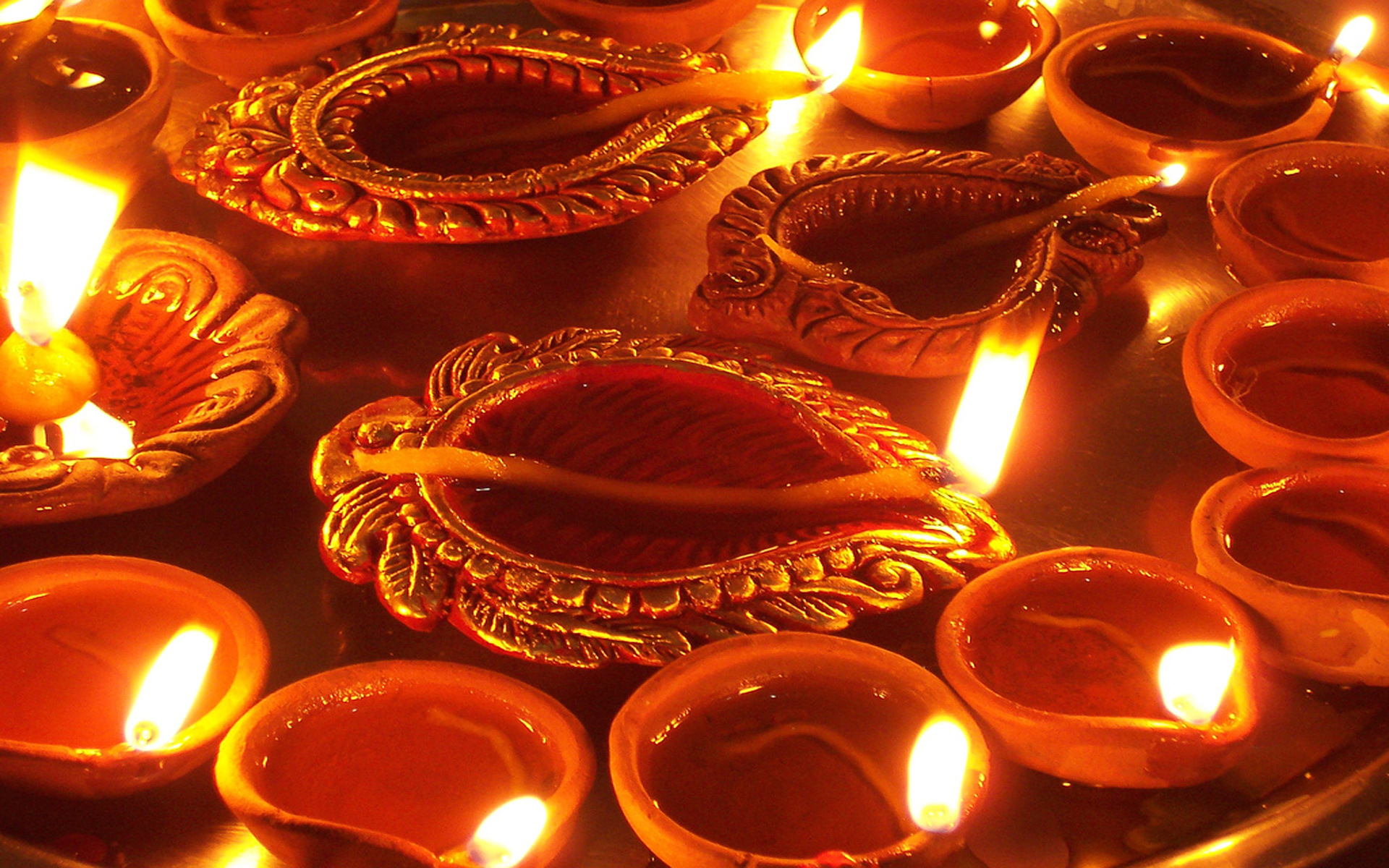When you hear of Diwali the first thing that comes to your mind is lights, sweets, and fire crackers. Diwali is indeed a day of celebration. There are many legends that mark this day as day of joy and happiness. It is believed that on this day lord ram returned to Ahyodya after kill king Ravan, Lord Krishna killed Narakasur, Samudra Manthan or churning of ocean happened on this day, Lakshmi goddess of wealth married lord Vishnu on this day. During the Diwali week everybody starts to prepare savory snacks and sweets, there is exchange of gifts and sweets. The auspicious Diwali lamps are lit and the whole country is shining, with the Diwali decoration. But there are some traditions that do things differently; they have their own foods and customs to be eaten on the Diwali day.
The Bengal’s Shaak
When everybody is eating sweets, the people of Bengal eat Shaak during the second day of Diwali. The elders would say “Na khele bhoote dhorbe,”. If you do not eat it, ghosts will haunt you. According to Charak Samhita it is believe that during the month of kartik, that is pre winter month, the doors leading to Yamloka are open and the evil spirits move freely, to protect oneself from these evils, and in order to retain our strength and ward off the dangers one must eat this Shaak. This unique shaak is made of 14 different kinds of leafy vegetables. This shaak consists of red amaranth leaves, Kalmi (water spinach), spinach, kochu (Colocasia), notey (amaranth), Kumro (pumpkin), Mulo (radish), Lau (bottle gourd), Paat (jute), Motorshuti (green peas), methi (fenugreek), Palta (pointed gourd leaves), Betho (bathua), and Shorshe (mustard) shaak. This shaak also has no specific recipe, each household makes it differently. The vegetables are first washed and soaked before cooking. And then the soaked water is sprinkled in and around the house to ward off any evil spirit.
The Tamil Nadu’s Diwali Medicine
The foods eaten during festivals can be heavy to the belly, and you may need help to digest. Therefore in Tamil Nadu a Marundu or medicine is prepared and is mandatory to be eaten empty stomach on deepavali day. This can be had anytime but during Diwali this is mandatory. Various ingredients such as carom seeds, poppy seeds, dry ginger, dry grapes, honey, Jaggery, nuts, ghee are used to prepare this medicine. This preparation prepares your digestive system for indulging in good festive food.
The Kerala’s Ginger Jaggery preparation.
Dhanvantri the god of medicine was the last person to appear from churning the ocean, with The elixir of immortality, ‘Amrit’. It is believed that Samudra Manthan happened on the Diwali day and the following day after Diwali is celebrated as Birthday of Dhanvantri. This is a very popular tradition in Kerela. Their Diwali morning starts with a pre bath Abhyanga that is massage with turmeric, gram flour and Oil. After this massage they have a ritual bath and wear clean clothes. Then a concoction made of Jaggery and Ginger is offered to Lord Dhanvantri to seek his blessings. Dhanvantri is god of health and medicine worshiping him with this preparation showers health and protection from diseases.
Ningol Chakkouba of Manipur
Diwali in Manipur is celebrated the same way it is celebrated in other parts of the country, by lighting lamps, exchanging sweets, gifts and bursting crackers. But before or after Diwali comes a very special Manipuri festival of “Ningol Chakkouba”. The festival of “Ningol Chakkouba” is a very important and popular festival of Manipur, especially the Meitei Community. It is celebrated on the second day of the lunar month of Hiyanggei , which falls a day or two either before or after Diwali. “Ningol” means the daughter of a family, and “Chakkouba” stands for feast. On this day, the married women of Manipur go to their paternal homes for a feast, and receive gifts from their parents and brothers. The children of the daughters are also exited as they get to wear new clothes, get gifts, dokhina (token money) on this auspicious day. The invitation of this festival is sent formally a week ahead of the festival by the brothers. The feast is prepared by bamon a Chef or by mothers and elders of the family. The dishes include vegetables and fish preparations such as nga thongba (fish curry), iromba (spicy chutney), ooty (type of dal), soibum mathel (bamboo shoots dishes), hei thongba (dessert made of fruits) and the list goes on and on. After a long lunch session with all the family members, the daughters spend quality time with their maternal family and relish their childhood memories. Daughters and their kids are the presented with gifts. This festival is so special that daughters wait the whole year for tis day to come.

